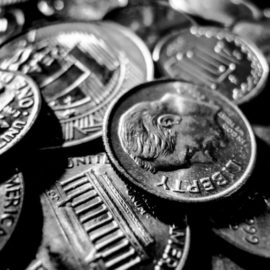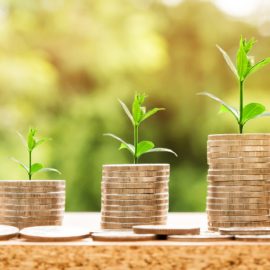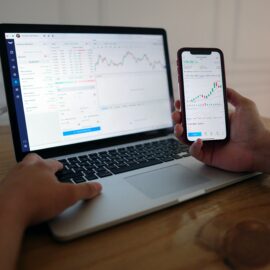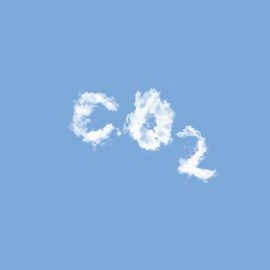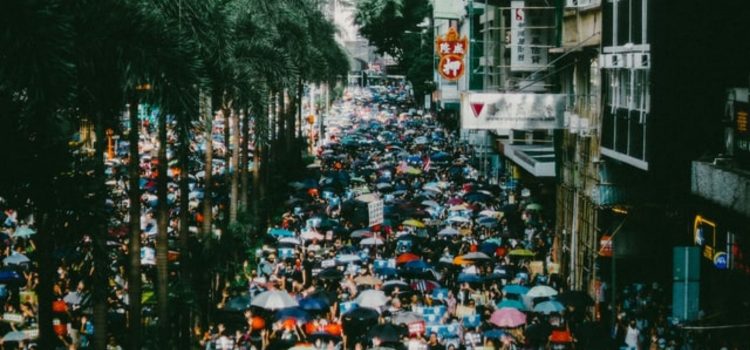
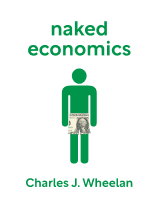
This article is an excerpt from the Shortform book guide to "Naked Economics" by Charles J. Wheelan. Shortform has the world's best summaries and analyses of books you should be reading.
Like this article? Sign up for a free trial here .
What exactly is human capital? What is the role of human capital in economic development?
Human capital is the sum of what makes an individual valuable and marketable (e.g. intelligence, athletic ability, education, and work experience, etc). Economies with higher levels of human capital are stronger than those with lower levels for a number of reasons: 1) it increases wealth; 2) it controls population growth, 3) it drives productivity, and 4) it explains inequality.
We’ll explore each of these below.
What Is the Role of Human Capital?
And as with other items for sale, the price of a person’s human capital (the income they can command for their skills) reflects its scarcity, not its inherent value. For example, a civil servant who helps raise people out of poverty might make less than a star basketball player. This is a reflection of the fact that there are many civil servants working with that same skill set, while there are only a few basketball players who excel to that level.
The role of human capital in economic development is four-fold:
- Human capital increases wealth.
- Human capital controls population growth.
- Human capital drives productivity.
- Human capital explains inequality.
1. Human Capital Increases Wealth
Human capital creates wealth for everyone, not just for the individual who has the capital, which benefits the entire society. Economists estimate that 75 percent of our modern economy is driven by personal resources like education, training, health, and skills, not physical resources like oil and steel. This accounts for the striking correlation between economic wealth and human capital in any given country, while there is a decided lack of correlation between economic wealth and natural resources in any given country. For example, Japan and England—countries with lots of human capital—are among the richest countries in the world despite having relatively few deposits of natural resources. Conversely, Nigeria has enormous oil deposits but its citizens have a comparatively low standard of living because they don’t have as much education or access to job training—things that would increase their human capital.
Further, and to a large degree, poverty is caused by a lack of human capital more than by a dearth of jobs. A lack of jobs is often a reflection of a society filled with people with low human capital, who don’t have the skills and education needed to contribute to the economy and create jobs.
2. Human Capital Controls Population Growth
One of the most difficult problems that poor countries face is high birth rates but few resources to properly care for their populations. While many people think that high birth rates cause a country to be poor, the causality actually runs in the other direction: Poverty causes people to have large families. This is not only because the cost of raising children is cheaper in poor countries, but also because those children are less likely to reach adulthood for a variety of reasons (malnutrition, disease, and violence being just a few), so parents have more kids as insurance.
When parents start accumulating human capital—through education or work experience—the cost to raise kids increases, both because parents start investing in their children more and also because raising children takes time that could otherwise be spent making money (opportunity costs). Further, as a country gets richer, the likelihood that each child will survive increases, which lessens the pressure for parents to have more children.
Consequently, when a population starts accumulating more and more human capital, its birth rate starts to decrease. This usually has a positive cyclical effect of then allowing parents to accumulate even more human capital (as they can spend their time and resources on things like education and work instead of caring for children), which encourages parents to have fewer children again as they start to feel more secure in the futures of the children they do have. Countries caught in such a positive cycle increase their overall standards of living as parents with smaller families increase their financial stability.
Therefore, the best way to control population growth is to increase human capital, which leads to economic opportunity. The proof of this can be seen across the developing world, where increased education and economic opportunities (especially for women, who often drive the family planning decisions), have led to fertility rates decreasing to or dropping below replacement rates of 2.1 births per woman.
3. Human Capital Drives Productivity
How an economy uses its human capital determines how efficiently it turns inputs into outputs—which in turn determines productivity. Inputs include time, money, labor, materials, and other resources. Outputs are tangible goods like cars, clothes, and houses, as well as intangible goods like health care and computer programming. Productivity rises when we can get more outputs out of fewer inputs. For example, a factory worker who makes a lamp in 10 hours is more efficient than one who makes the same lamp in 30 hours. A farmer who gets 100 bales of hay from a field is more efficient than one who gets only 15 bales from it.
Productivity depends upon human capital: A labor supply that is capable, educated, and healthy. Countries that have ready supplies of these kinds of workers, especially for skilled work, can offer productivity that lesser-developed countries can’t rival. This is why warnings from politicians about other countries stealing domestic jobs en masse are mostly overblown. When deciding where to locate a factory, firms must take into account productivity as well as labor costs: A worker who costs half as much as a domestic worker but produces only a tenth as much is not a good bargain.
Further, productivity—and productivity growth—is what makes a country rich. Productivity growth explains why a typical American household needed 1,800 hours of labor to amass its annual food supply in 1870, while today, it only needs about 260 hours of labor. When goods become cheaper in terms of the work-hours needed to purchase them, consumers can afford more items and their standard of living rises.
4. Human Capital Explains Inequality
Human capital goes a long way toward explaining economic inequality. By almost any measure, America is unequal and is growing more so: In 2004, the bottom fifth of American households in terms of income distribution earned only 2 percent more than they did in 1979 (inflation-adjusted), while the top 20 percent of Americans saw their income increase by 63 percent in the same time frame.
This divergence corresponds with a divergence in the levels of human capital at either end of the economic spectrum and an economy that increasingly rewards skilled workers (those with human capital).
Almost every industry has shifted toward a need for computer skills, which has decreased the need for low-skilled workers but increased the need for high-skilled ones. For example, automatic teller machines have made many bank tellers redundant, but at the same time, have created jobs for computer programmers who design the machines.
However, because computer training and other such capital-building investment is often unaffordable for those at the very bottom of the social-economic ladder, they get shut out of the fastest-growing segments of the economy, leading to increased inequality between the upper and lower echelons of society.
Does Inequality Matter?
Economists have traditionally argued that inequality is an acceptable part of a healthy economy for two reasons:
- Inequality motivates people to do things that will improve their stations, such as go to school or start businesses.
- As long as everyone’s standards of living are improving, there’s no harm in some people’s standards improving more than others’.
However, economists are starting to question the absolute truth of these assumptions. People don’t actually react to inequality in a way consistent with these assumptions, because the assumptions don’t take into account certain aspects of human nature.
On the first point, there may be a level of inequality at which differences in income are no longer motivating, but are instead de-motivating. When poor people feel so disenfranchised that they don’t believe they can climb out of poverty, they start to reject some basic market foundations, such as the rule of law or property rights. A breakdown of the foundations of the economy benefits no one, as it creates problems of lawlessness and inefficiency that become a drag on the economy as a whole, affecting everyone.
On the second point, economists are starting to acknowledge that a person judges her wealth based not only on the absolute value of it, but also on its relative value in comparison to people around her. This means that economists are misjudging what constitutes “success” and are misunderstanding what makes people satisfied with their lives. For example, a person earning $100,000 a year when everyone around her earns $75,000 will be happier than a person earning $200,000 when everyone around her earns $300,000, because the first person feels she’s earning more than her peers while the second person feels she’s earning less than her peers. Therefore, while it might seem on paper that the person earning $200,000 is better off than the person earning $100,000, the actual people involved may not feel the same way.
Thus, economists are starting to agree that a certain level of inequality might do more harm than good to an economy, because people react negatively to it emotionally and might therefore behave negatively as well.

———End of Preview———
Like what you just read? Read the rest of the world's best book summary and analysis of Charles J. Wheelan's "Naked Economics" at Shortform .
Here's what you'll find in our full Naked Economics summary :
- An explanation of economics that anyone can understand
- How governments and firms can use incentives to foster a healthy economy
- How and why people behave in certain ways

